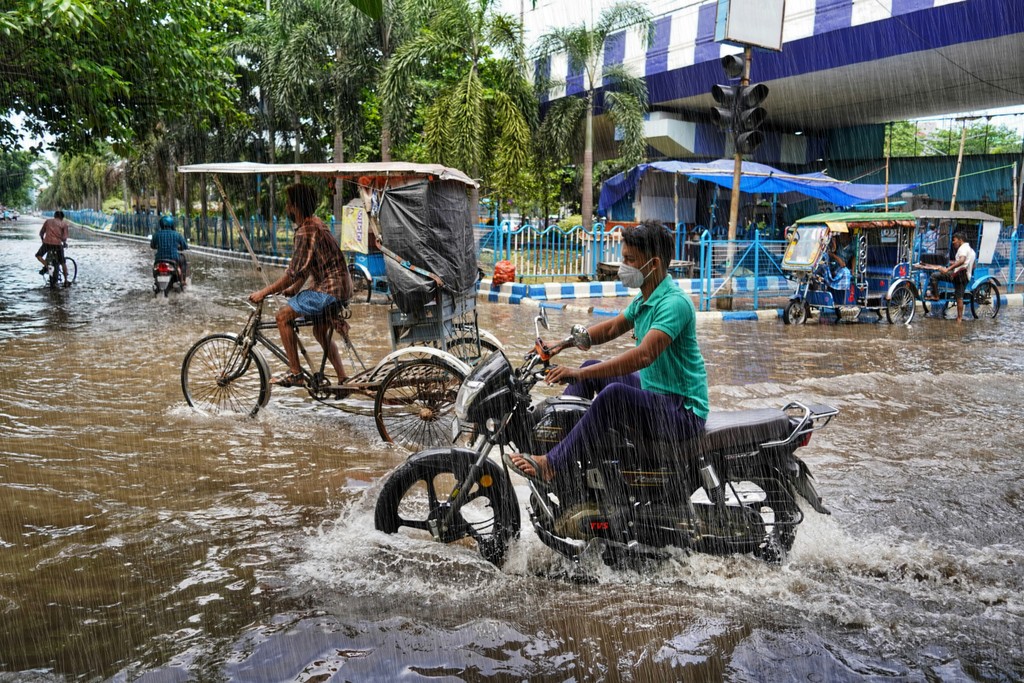UNRULINESS: Rethinking Uncertainty in Environmental Change
Exploring the dynamics that can transform how we govern socioenvironmental change.




Why UNRULINESS Matters
The UNRULINESS research network sheds light on how efforts to respond to environmental change, like renewable energy projects, are deeply entangled with social, political, and environmental uncertainties. By understanding these unpredictable forces, we can better navigate the challenges of governing environmental change. Here’s why this matters
Navigating Uncertainty
Navigating Uncertainty
Navigating Uncertainty
Traditional models fail to account for volatile social and environmental dynamics, leading to unforeseen consequences in projects intended to respond to climate change.
Traditional models fail to account for volatile social and environmental dynamics, leading to unforeseen consequences in projects intended to respond to climate change.
Traditional models fail to account for volatile social and environmental dynamics, leading to unforeseen consequences in projects intended to respond to climate change.
Innovative Methods
Innovative Methods
Innovative Methods
Through cutting-edge research and collaboration, the project develops new tools for understanding the complex entanglements of energy, society, and the environment.
Through cutting-edge research and collaboration, the project develops new tools for understanding the complex entanglements of energy, society, and the environment.
Unveiling Hidden Power
Unveiling Hidden Power
Unveiling Hidden Power
The project highlights how uncertainties often mask deeper political and social power struggles, including in marginalized communities.
The project highlights how uncertainties often mask deeper political and social power struggles, including in marginalized communities.
The project highlights how uncertainties often mask deeper political and social power struggles, including in marginalized communities.
Reimagining Governance
Reimagining Governance
Reimagining Governance
UNRULINESS questions the current methods of governing environmental change, imagining
new approaches to handling unpredictable change.
UNRULINESS questions the current methods of governing environmental change, imagining
new approaches to handling unpredictable change.
UNRULINESS questions the current methods of governing environmental change, imagining
new approaches to handling unpredictable change.
Global Relevance
Global Relevance
Global Relevance
By studying places like Nepal, Zambia, Hungary, Norway, Nicaragua, and Kenya, UNRULINESS uncovers patterns of socioenvironmental change that are relevant for communities
worldwide.
By studying places like Nepal, Zambia, Hungary, Norway, Nicaragua, and Kenya, UNRULINESS uncovers patterns of socioenvironmental change that are relevant for communities
worldwide.
By studying places like Nepal, Zambia, Hungary, Norway, Nicaragua, and Kenya, UNRULINESS uncovers patterns of socioenvironmental change that are relevant for communities
worldwide.
Unruliness Team
Unruliness Team
Unruliness Team
Unruliness Team

Andrea Nightingale
Professor (Geography) UNIVERSITY OF OSLO

Andrea Nightingale
Professor (Geography) UNIVERSITY OF OSLO

Andrea Nightingale
Professor (Geography) UNIVERSITY OF OSLO

Marta Tveit
Postdoctoral Fellow UNIVERSITY OF OSLO

Marta Tveit
Postdoctoral Fellow UNIVERSITY OF OSLO

Marta Tveit
Postdoctoral Fellow UNIVERSITY OF OSLO

Megan Gette
Postdoctoral Fellow UNIVERSITY OF OSLO

Megan Gette
Postdoctoral Fellow UNIVERSITY OF OSLO

Megan Gette
Postdoctoral Fellow UNIVERSITY OF OSLO

Cedar Spring Patterson
PhD Fellow UNIVERSITY OF OSLO

Cedar Spring Patterson
PhD Fellow UNIVERSITY OF OSLO

Cedar Spring Patterson
PhD Fellow UNIVERSITY OF OSLO

Ural Kafle
PhD Fellow UNIVERSITY OF OSLO

Ural Kafle
PhD Fellow UNIVERSITY OF OSLO

Ural Kafle
PhD Fellow UNIVERSITY OF OSLO

Stephen Williams
Postdoctoral Fellow UNIVERSITY OF OSLO

Stephen Williams
Postdoctoral Fellow UNIVERSITY OF OSLO

Stephen Williams
Postdoctoral Fellow UNIVERSITY OF OSLO

Giulia Di Nunno
Professor (Mathematics) UNIVERSITY OF OSLO

Giulia Di Nunno
Professor (Mathematics) UNIVERSITY OF OSLO

Giulia Di Nunno
Professor (Mathematics) UNIVERSITY OF OSLO

Helene Ahlborg
Associate Professor (Environmental Systems Analysis) CHALMERS UNIVERSITY OF TECHNOLOGY

Helene Ahlborg
Associate Professor (Environmental Systems Analysis) CHALMERS UNIVERSITY OF TECHNOLOGY

Helene Ahlborg
Associate Professor (Environmental Systems Analysis) CHALMERS UNIVERSITY OF TECHNOLOGY

Kyle Devine
Professor (Environmental Studies) UNIVERSITY OF WINNIPEG

Kyle Devine
Professor (Environmental Studies) UNIVERSITY OF WINNIPEG

Kyle Devine
Professor (Environmental Studies) UNIVERSITY OF WINNIPEG

Aaron Rice
Principal Ecologist CORNELL UNIVERSITY

Aaron Rice
Principal Ecologist CORNELL UNIVERSITY

Aaron Rice
Principal Ecologist CORNELL UNIVERSITY
Our Approach
The UNRULINESS network uses innovative, interdisciplinary methods to study how projects
to address environmental change interact with uncertain social, political, and environmental factors. By combining field research with theoretical development, we aim to create new ways of understanding and managing socioenvironmental change.
The UNRULINESS network uses innovative, interdisciplinary methods to study how projects to address environmental change interact with uncertain social, political, and environmental factors. By combining field research with theoretical development, we aim to create new ways of understanding and managing socioenvironmental change.
The UNRULINESS network uses innovative, interdisciplinary methods to study how projects to address environmental change interact with uncertain social, political, and environmental factors. By combining field research with theoretical development, we aim to create new ways of understanding and managing socioenvironmental change.
The UNRULINESS network uses innovative, interdisciplinary methods to study how projects to address environmental change interact with uncertain social, political, and environmental factors. By combining field research with theoretical development, we aim to create new ways of understanding and managing socioenvironmental change.
Focus on Uncertainty
Developing methods that can account for the unpredictable and non-linear nature of socioenvironmental processes, moving beyond static prediction models.
Methodological Innovation
Creating new tools and approaches that integrate both social and environmental factors, challenging traditional models of governance.
Interdisciplinary Collaboration
Bringing together experts in social sciences, stochastic mathematics, bioacoustics, and more to develop holistic research methods.
Co-Creation with Communities
Working alongside local communities to generate insights that respect local knowledge and challenge colonial research practices.
Interdisciplinary Collaboration
Bringing together experts in social sciences, stochastic mathematics, bioacoustics, and more to develop holistic research methods.
Co-Creation with Communities
Working alongside local communities to generate insights that respect local knowledge and challenge colonial research practices.
Interdisciplinary Collaboration
Bringing together experts in social sciences, stochastic mathematics, bioacoustics, and more to develop holistic research methods.
On-the-Ground Research
Conducting field studies in diverse regions like Nepal and Zambia to observe how local communities experience energy infrastructure and change.
Co-Creation with Communities
Working alongside local communities to generate insights that respect local knowledge and challenge colonial research practices.

